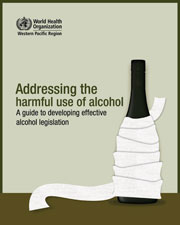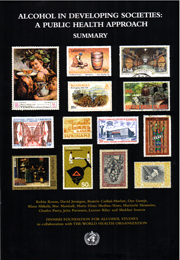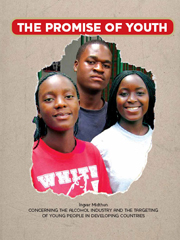
Training program on evidence-based alcohol policies in developing countries
Blue Cross and FORUT have developed a training program on evidence-based alcohol policies. Training sessions have so far been held in seven countries in Africa.
The training program on evidence-based alcohol policies was developed in its first version in 2009. The program was first tested in three countries, then revised and further implemented in four more countries in Sub-Saharan Africa. The Norwegian NGOs FORUT and Blue Cross have been responsible for the project, with financial support from International Federation of Blue Cross (IFBC).
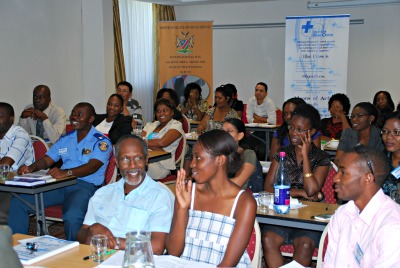
Sub-Saharan Africa
Seven countries in the Southern-African region have so far been covered with training sessions. Local implementation is done in cooperation with NGOs, government ministries and national WHO offices. A training session normally lasts three days. The following countries have been involved so far: 2009: Botswana and Malawi; 2010: Namibia and Chad; 2011: Lesotho and Madagascar and 2012: Zambia (two sessions).
The program promotes the transfer of knowledge to key stakeholders in selected developing countries. In due course the material will be made available to all who want to build capacity in the field of alcohol policy.
Alcohol No Ordinary Commodity
The content of the training is based on internationally recognized research as presented in the study ‘Alcohol; No Ordinary Commodity` and a number of WHO documents such as the Global strategy to reduce the harmful use of alcohol (2010). This evidence-base gives clear directions to the formulation of effective interventions against alcohol-related harm that will protect the populations against an increased disease burden.
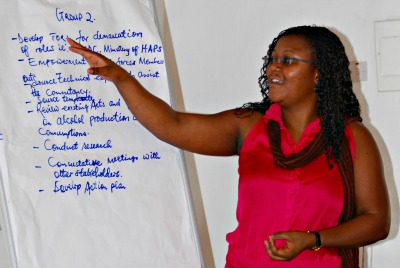
The training program is based on well tested thematic modules that a trainer can hold separately or combined as a three-day training. The modules are context sensitive and designed to ensure a participatory approach. Highly qualified persons in this field are used as resource persons to safeguard the quality of the trainings. The project has built relationships with a number of researchers and other key persons worldwide. This includes a reference group of alcohol policy experts from all over the globe.
The first day of the three-day training starts with identifying the problems related to alcohol in the country or place the training is held. On the second day the emphasis is on sharing ways in which the harmful use of alcohol can be effectively prevented. The third day is action focused, and spent identifying ways of using this knowledge when facing the challenges at hand. A plan for follow up is then designed by the participants at the training.
Partnership with civil society
Working in partnership with civil society organizations in Southern-Africa, the training program is found to have significant positive impact on national alcohol policies that are being developed or revised in countries in the region. It has also been instrumental in establishing national alcohol policy alliances. Furthermore, the Southern African Alcohol Policy Alliance (SAAPA) was first initiated during the project’s Training of Trainers which took place in Uganda in 2010. SAAPA was formalized during the Southern Africa Alcohol Policy Forum in Johannesburg in November 2012.

Counterbalance to vested interests
It is imperative to counter the strategies and activities that the global alcohol industry is implementing in African countries. With its rapid economic growth and young populations, the region is the current hot-spot for an industry looking to recruit new consumers. This is proceeding in a manner which, if left unchallenged, will lead to an increased burden of disease in the region. This project is addressing a key challenge in Africa today. It is unique in its kind and deeply needed on the African continent.
For further information, please contact:
Project manager Torunn Saether, Blue Cross Norway: torunn.saether@blakors.no
Øystein Bakke and Dag Endal in FORUT: oystein@forut.no and dag@forut.no
Related articles
![]()
![]()
Developed with CustomPublish CMS by Nettinfo AS

